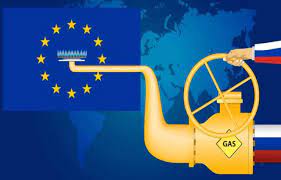
-
Published: 26 July 2022

With almost no margins of movement for European countries to compensate for Russian gas, the Europeans are afraid of Russia's vague policy on gas supply, especially since the time factor pressures them, winter usually falls early in European countries.
In the wake of the reduction in Russian gas supply, the price of this commodity continues its rocket rise in Europe, surpassing Tuesday's $ 2000 per 1,000 cubic metre limit, for the first time since March.
In this context, European Union countries today decided to reduce gas consumption by 15 percent and reduce reliance on Russian gas supplies, as part of a contingency plan to reduce its use of this strategic material in the winter, which falls early in Europe.
Earlier in July, Russia announced a moratorium on gas supplies at the "Nord Stream 1" gas line, which supplies gas to Germany for reasons it said were related to maintenance.
This comes as economists believe that things are moving towards pricing an "energy war" between Russians and Europeans, as the military war in Ukraine continues.
The crisis is worsening, particularly since winter is on the door.
The European Union's Energy Commissioner, Kadri Simson, saw Russian gas giant Gazprom's announcement that it would reduce further deliveries to Europe this week as a politically motivated move.
"We know there is no technical reason to do this, this is politically motivated and we have to be prepared for it," Simson added when she arrived in Brussels for a meeting of EU energy ministers.
The Presidency of the European Union considered the reduction of gas supplies as "new evidence" that Moscow should not be relied upon, while the German Government called on citizens to reduce gas use after Gazprom announced a reduction in its supply.
The German Vice Chancellor and Minister of Economic Affairs and Climate Protection Robert Habeck considered Russia playing a "crafty game" by announcing the reduction of gas supplies via the "Nord Stream 1" pipeline.
